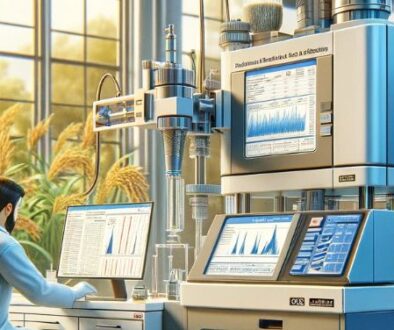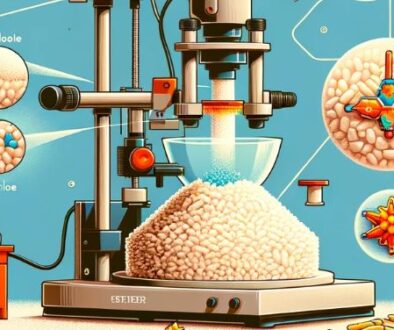Golden Rice And Its Safety
Exploring Golden Rice’s role in fighting vitamin A deficiency through the innovation of Professors Potrykus and Beyer, amidst global debates on GMOs.
The inventors of golden rice (golden rice, referred to as golden rice) are honorary professor Ingo Potrykus of the Institute of Plant Sciences of the Swiss Federal Institute of Technology in Zurich and the Center for Applied Biosciences of the University of Freiburg in Germany. Professor Peter Beyer.
Overview of Golden Rice
In the realm of agricultural biotechnology, few innovations have sparked as much interest and controversy as Golden Rice. This genetically modified crop, distinguished by its golden color due to the presence of beta-carotene, represents a groundbreaking attempt to combat vitamin A deficiency (VAD), a severe public health issue affecting millions of children and pregnant women in the poorest areas of the world. The minds behind this pioneering effort are Honorary Professor Ingo Potrykus of the Institute of Plant Sciences at the Swiss Federal Institute of Technology in Zurich, and Professor Peter Beyer of the Center for Applied Biosciences at the University of Freiburg in Germany. Their collaboration has not only pushed the boundaries of agricultural science but also ignited a global debate on the role of genetically modified organisms (GMOs) in food security and nutrition.
Combatting Vitamin A Deficiency
Golden Rice was developed as a strategic intervention to address VAD, which is responsible for a range of health issues, including blindness, immune deficiencies, and even death. Traditional interventions, such as supplementation and dietary diversification, have had limited success in reaching the most vulnerable populations. Golden Rice, with its enhanced beta-carotene content, aims to provide a sustainable and bioavailable source of vitamin A through the diet.
Biotechnological Breakthrough
The development of Golden Rice is a testament to the intersection of biotechnology and humanitarian concern. Professors Potrykus and Beyer embarked on this project in the late 1990s, leveraging their expertise in plant biology and genetic engineering. They introduced genes responsible for beta-carotene synthesis into the rice genome, resulting in rice grains that produce and accumulate beta-carotene in the endosperm—the part of the grain that remains after milling. This innovation was not just a scientific breakthrough; it was a beacon of hope for addressing micronutrient deficiencies through biofortification, a process of increasing the nutritional value of food crops.
The Global Debate
Despite its potential to alleviate VAD, Golden Rice has faced significant hurdles. The use of GMO technology has been met with skepticism and resistance from various stakeholders, including environmental groups, policymakers, and consumers. Concerns have been raised about the ecological implications, long-term health effects, and the ethics of patenting life forms. The debate over Golden Rice encapsulates the broader discourse on GMOs, touching on issues of food sovereignty, corporate control of the food supply, and the environmental impact of biotechnology.
Recognition and Reflection
Nevertheless, the work of Professors Potrykus and Beyer has garnered international recognition and sparked a conversation about the possibilities and limitations of biotechnology in addressing global health challenges. It has also underscored the importance of rigorous scientific research, transparent regulatory processes, and inclusive dialogue among all stakeholders in the development and deployment of GMO crops.
Looking Ahead
In conclusion, Golden Rice stands as a significant milestone in the quest to improve global health through agricultural innovation. The contributions of Honorary Professor Ingo Potrykus and Professor Peter Beyer have not only advanced our understanding of genetic engineering but also highlighted the complex interplay between science, society, and ethics in the modern world. As we move forward, the story of Golden Rice remains a compelling reminder of the potential and challenges of using biotechnology to address some of humanity’s most pressing issues.
For futher details of this article and research, feel free to contact our team for assistance.
About ETprotein:
ETprotein, a reputable plant protein vegan protein Chinese factory manufacturer and supplier, is renowned for producing, stocking, exporting, and delivering the highest quality organic bulk vegan protein and plant proteins. They include Organic rice protein, clear rice protein, pea protein, clear pea protein, oat protein, watermelon seed protein, pumpkin seed protein, sunflower seed protein, mung bean protein, peanut protein, various of plant peptides etc. Their offerings, characterized by a neutral taste, non-GMO, allergen-free attributes, cater to a diverse range of industries. They serve nutraceutical, pharmaceutical, cosmeceutical, veterinary, as well as food and beverage finished product distributors, traders, and manufacturers across Europe, USA, Canada, Australia, Thailand, Japan, Korea, Brazil, and Chile, among others.
ETprotein specialization includes exporting and delivering tailor-made protein powder and finished nutritional supplements. Their extensive product range covers sectors like Food and Beverage, Sports Nutrition, Weight Management, Dietary Supplements, Health and Wellness Products, and Infant Formula, ensuring comprehensive solutions to meet all your protein needs.
As a trusted company by leading global food and beverage brands and Fortune 500 companies, ETprotein reinforces China’s reputation in the global arena. For more information or to get a free sample of their protein products, please contact them and email sales(at)ETprotein.com today.












